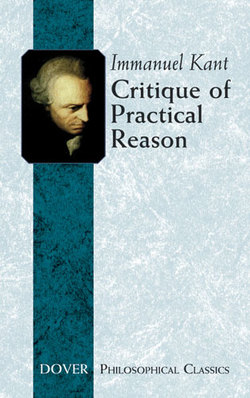Описание книги
The second of Kant's three critiques, <I>Critique of Practical Reason</I> forms the center of Kantian philosophy; published in 1788, it is bookended by his <I>Critique of Pure Reason</I> and <I>Critique of Judgement</I>. With this work Kant establishes his role as a vindicator of the truth of Christianity; he approaches his proof by presenting positive affirmation of the immortality of the soul and the existence of God. The philosopher offers an argument concerning the <I>summum bonum</I> of life: people should not simply search after happiness, but follow the moral law and seek to become worthy of the happiness that God can bestow.<BR>This <I>Critique</I> comprises three sections: the Analytic, the Dialectic, and the Doctrine of Method. The Analytic defines the ultimate moral principle, the categorical imperative, and argues that to obey it is to exercise a freedom. The Dialectic make the assumption that immortality and God exist, arguing that pure practical reason falls into error when it expects perfection in this world; we should anticipate finding perfection in the next world, with God's help. The final section, the Doctrine of Method, offers suggestions in educating people in the use of pure practical reason.<BR>A seminal text in the history of moral philosophy, this volume offers the most complete statement of Kant's theory of free will and a full development of his practical metaphysics.
